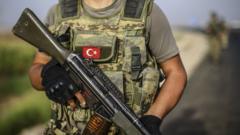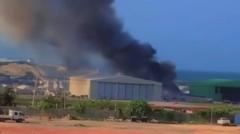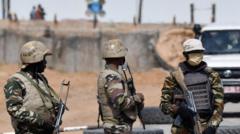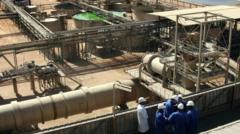The Kurdistan Workers’ Party, known as P.K.K., has officially announced its disbandment, ending a 40-year armed struggle against the Turkish government. This historic decision follows a call from its imprisoned leader, Abdullah Ocalan, and marks a potential turning point in Kurdish rights and Turkish political dynamics.
P.K.K. Announces Disbandment, Signaling a New Era in Turkish Politics

P.K.K. Announces Disbandment, Signaling a New Era in Turkish Politics
The Kurdish militant group P.K.K. lays down arms, potentially reshaping relationships in Turkey and its neighboring regions following decades of conflict.
The Kurdistan Workers’ Party, commonly referred to by its Kurdish acronym P.K.K., has made a monumental announcement regarding its future and the ongoing conflict with Turkey. On Monday, the group declared it would lay down its arms and dissolve, effectively concluding a bloody insurgency that has spanned four decades. This landmark decision follows a recent appeal from its jailed leader, Abdullah Ocalan, urging members to embrace disarmament and pursue peaceful solutions.
The P.K.K. originally emerged in the 1980s, aiming for an independent state for the Kurdish population in Turkey, which is estimated to comprise about 15% of the country's populace. Over the years, the group's objectives evolved, shifting towards the quest for greater civil rights for Kurds living within Turkey. The conflict has claimed over 40,000 lives, including both P.K.K. militants and Turkish military personnel, as well as civilians caught in the crossfire. Consequently, the United States, Turkey, and other nations classify the P.K.K. as a terrorist organization.
As the dust settles on this unprecedented move, observers are curious to see how it will influence Turkish governance and tensions in the surrounding region. Furthermore, this development raises pivotal questions about the future of Kurdish rights and autonomy in Turkey, as well as the effectiveness of prior peace initiatives. With the P.K.K.'s disbandment marking a significant turning point, stakeholders across Turkey and neighboring territories are bracing for potential shifts in political and social dynamics.






















